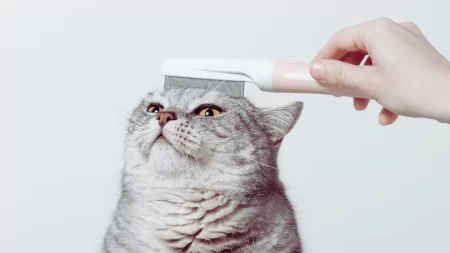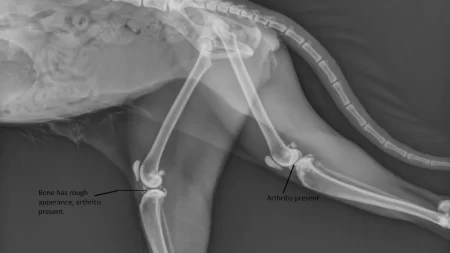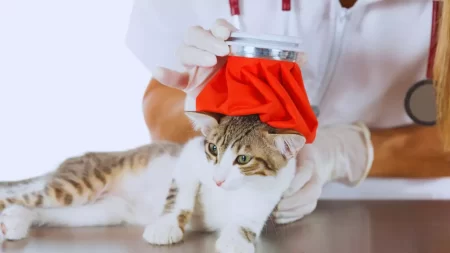Worried about your furry friend’s roundworms? Now you can confidently give your cat the best treatment! Read this article for helpful tips. Discover the essential steps to keep your cat healthy and thriving.
Roundworms are a type of parasitic infection in cats caused by the Nematoda family. It is found in the food eaten by cats, such as mice, birds, and other animals. If not treated quickly, it can lead to serious health problems. Knowing the symptoms and treatments for roundworm cats is important.
This guide helps you with treatments and prevention. It covers:
- Diagnosis
- Medication
- Lifelong prevention
- Natural remedies
- Supportive treatments
Familiarizing yourself with this guide will help your cat recover from a roundworm infection.
Causes of Roundworm in Cats
Roundworms are common parasites for cats. The most usual kind is called Toxocara cati. It’s a long, white worm that cats can vomit, poop out, or show as a lump near their bottom.
No one knows how cats get roundworms. But, caring for an infected cat might spread the worms to people and other pets, especially kids. Kittens can also get them from their mom’s milk or bedding before they’re born.
Other ways cats can get roundworms to include:
- Eating another pet’s poo.
- Eating soil with eggs from an infected animal.
- Eating wild animals which have worms.
Symptoms of Roundworm in Cats
Roundworm infections in cats are very common. They can cause various symptoms. It’s important to know the signs of this parasite, so your cat can get the right treatment.
Signs to look out for include:
- Vomiting
- Diarrhea
- Decreased appetite
- Weight loss
- Abdominal pain
- Lethargy
- A rough coat
- Visible worms in vomit or stool
Some cats might not show any signs at all. Other, more serious symptoms may occur if the worms are migrating through the body. For example, coughing or shortness of breath due to pulmonary larvae, fever due to liver migration, or localized inflammation at worm penetration sites. In rare cases, blockage of organs like the intestines can happen if a large number of worms cause obstruction.
If you think your cat has roundworms, take it to the vet’s clinic right away. A vet can examine the stool under a microscope and detect eggs to confirm an infection. Treatment may include deworming medications or surgery if needed.
Diagnosing Roundworm in Cats
Roundworm is an intestinal parasite found in cats, especially young kittens. If not treated, it can be serious and life-threatening. Symptoms can be hard to notice, and the condition may go undiagnosed for a long time. So, pet owners need to be aware of the signs.
Cats are very prone to roundworm infestations, so it is crucial for pet owners to know how to diagnose them. Roundworms look like short spaghetti-like worms and can be seen in a cat’s vomit or feces. Signs of possible roundworm infection include:
- Weight loss
- Diarrhea
- Abdominal pain
- Lethargy
- Vomiting with visible worms
Not all cats with roundworms will show symptoms. If you think your cat has roundworms, contact your veterinarian immediately for diagnosis and treatment. Treatment may include dewormer medications and diet changes. Taking action quickly can help keep your cat free from parasites!
Treatment Options for Roundworm in Cats
Roundworms are a common problem in cats. They can cause vomiting, diarrhea, loss of appetite, and a pot-bellied appearance. Your cat could get roundworms if they eat an infected animal, or if they go outside and come into contact with contaminated soil or water. It’s important to treat roundworms quickly to avoid further issues.
There are various ways to treat roundworms. These include oral medications and topical treatments such as spot-on products. Depending on the severity of the infection, some medications require multiple doses, while others only require one dose. Ask your vet which type of treatment is best for your cat.
- Oral medications must be given multiple times over a few weeks or months. This could involve several doses, depending on your pet’s age and health.
- Topical treatments, on the other hand, can be applied directly onto your pet’s coat. These contain an active ingredient that will kill larvae upon contact.
To reduce the risk of re-infection, keep your cat away from unhygienic environments. Clean and sanitize all surfaces with warm soapy water after each use, especially if you’ve been in contact with an infected pet. Wear gloves during cleaning if necessary. Make sure to follow all animal waste disposal practices correctly too.
Prevention of Roundworm in Cats
Prevention is the best way to control roundworms in cats. To help prevent infection, visit the vet regularly and get a fecal examination. Vaccines are also important. Speak to your vet about the best type. Deworming every three months for kittens and six months for adults is necessary too.
- For indoor-only cats, flush or close off feces.
- Keep outdoor areas clear of animal droppings.
- Make sure household garbage is sealed and inaccessible.
- Discard any carcasses found outside to reduce contamination risk.
Common Questions about Roundworms in Cats
Roundworm is a parasite commonly found in cats, especially kittens. People have many misconceptions about it, so this article is here to help.
Roundworm is either Toxocara cati or Toxascaris leonina. It’s an infection called toxocariasis which can infect humans and other animals. If not treated, it can be serious for humans.
Cats with a roundworm infection can have digestive problems, vomiting, or diarrhea. Kittens over two weeks old can get it from their mother’s milk or other cats’ feces. Adult cats can get it from eating infected prey.
People have questions like:
- How is roundworm diagnosed?
- Does it need treatment?
- How do you treat it?
- What follow-up care is needed?
A vet can use tests to diagnose it. Treatment includes de-worming medications, which may need to be repeated. Flea control is important too. After treatment, vets may suggest testing every month for up to a year to make sure it doesn’t come back.
Summary
Roundworms are a frequent problem for cats. They can cause health problems. Treatment requires a vet to diagnose and may involve meds or prevention. It’s important to watch out for symptoms such as vomiting, diarrhea, poor weight gain, a round belly, and a low activity level.
The most popular medication used to treat roundworms in cats is pyrantel pamoate. This med paralyzes the worms so they can be passed out in feces. The whole treatment must be done as instructed, or else the infection may come back or cause more issues. Another option is fenbendazole, which stops eggs from maturing in the intestines.
Hygiene is also essential to reduce reinfection risk. Deworming, proper disposal of pet waste, routine deworming for indoor and outdoor cats, and keeping food away from contaminated areas are all important steps. Additionally, talk to your vet if you have questions or worries about treating your cat’s roundworms. It’s important for timely resolution and a positive outcome.




![How To Treat Roundworm Cats? [Dealing with Roundworm] how to treat roundworm cats](https://justcatlover.com/wp-content/uploads/2023/02/how-to-treat-roundworm-cats-1024x576.jpg)


